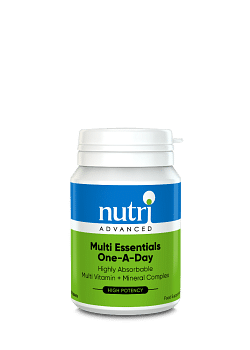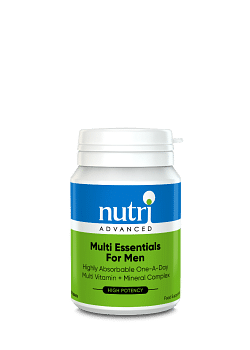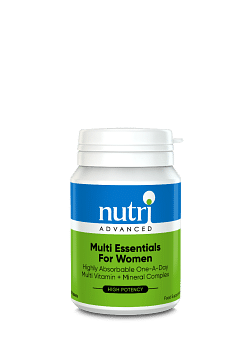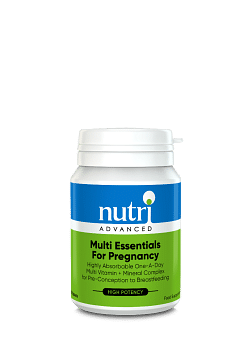Which is the Best Source of Vitamin E?
Why you can trust Nutri Advanced Every article on our site is researched thoroughly by our team of highly qualified nutritionists. Find out more about our editorial process.
There is much written and talked about the benefits of vitamin E. It is well known for its diverse roles in our health - as an antioxidant, for skin health, immune function and cardiovascular protection. These benefits are widely publicised but what many people don’t know is that vitamin E is not just a straightforward single nutrient. Vitamin E appears in nature as a collection of different forms, so if you are going to take a supplement you need to make sure it provides this too.
Mother Nature actually produces several different forms of vitamin E that act in different biological systems. In nature, you will never find a single form of vitamin E. It comes packaged together as mixed tocopherols (alpha, beta, gamma and delta tocopherol), each having its own specific and very important role.
Many supplements provide vitamin E in the form of alpha tocopherol because this is the form that gets much of the press coverage. It is also often the cheapest form. Alpha tocopherol is also used by the food industry to protect fats from rancidity. Its prevalence in supplements and within our food means that the alpha tocopherol form of vitamin E tends to be consumed in much larger quantities than beta, delta and gamma tocopherol, and this has potentially caused widespread imbalance in human biological systems.
It is therefore important when you take a supplement containing vitamin E that it contains a mix of tocopherols, packaged as nature intended. Look out for this in your daily multi vitamin & mineral supplement, and if you’re not sure, just ask.
This website and its content is copyright of Nutri Advanced ©. All rights reserved. See our terms & conditions for more detail.
Nutri Advanced has a thorough research process and for any references included, each source is scrutinised beforehand. We aim to use the highest value source where possible, referencing peer-reviewed journals and official guidelines in the first instance before alternatives. You can learn more about how we ensure our content is accurate at time of publication on our editorial policy.
Most Popular Articles
-
7 Surprising Ways To Support Your Magnesium
If you are displaying signs of a magnesium deficiency, here are 7 ways to boost your magnesium levels that are easy to incorporate into your daily life. -
5 Best Vitamin C Supplements Picked By Our Experts
Learn more about the different types of vitamin C, the different benefits you get from different types, and what you get for spending more on a good supplement. -
Top 5 Vitamins For Energy And Tiredness Picked By Our Experts
The 5 best and most important vitamins for energy & tiredness including B vitamin food sources & best supplement forms for energy. -
Benefits of Myo-Inositol for Polycystic Ovary Syndrome (PCOS)
In this research review article, we take a closer look at a lesser-known natural compound called myo-inositol that has been found to have significant potential to improve many of the prevalent features of PCOS. -
Top 10 Reasons to Give Your Kids Omega-3
Read the top 10 reasons that kids should have plenty of Omega-3- an essential fatty acid- including for depression, brain function, sleep & reading/maths skills.













